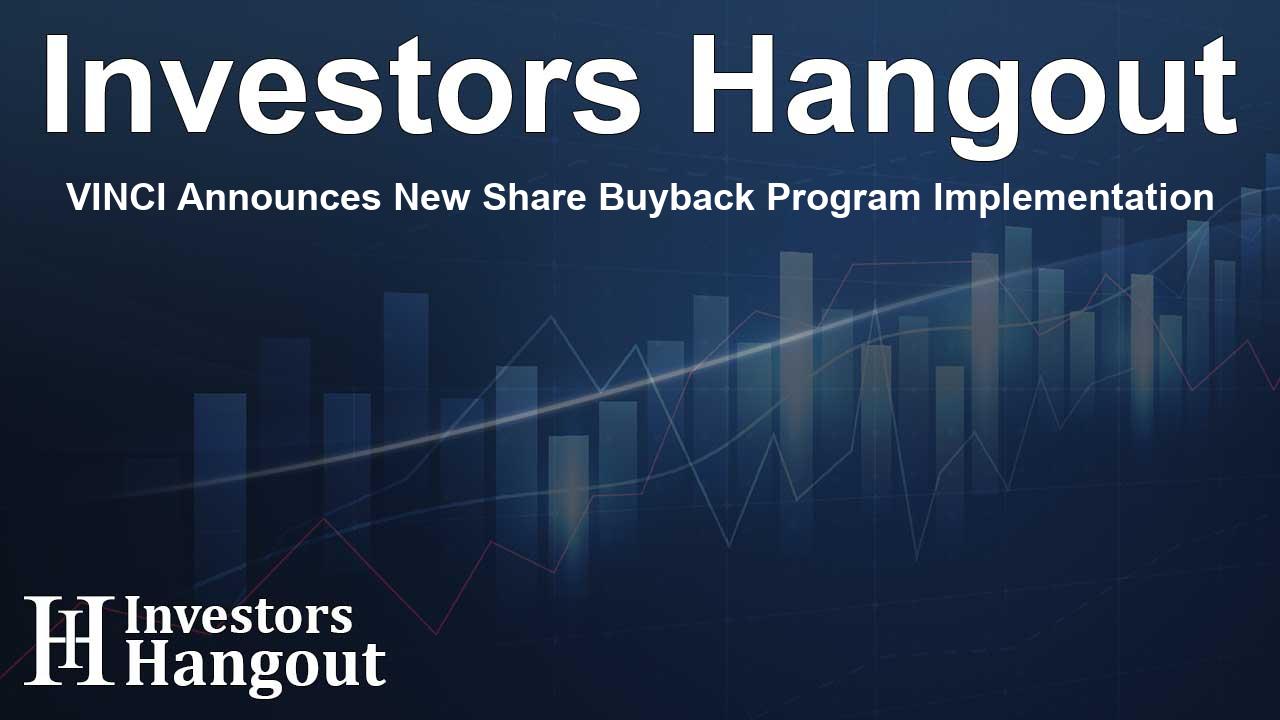VINCI Announces New Share Buyback Program Implementation

VINCI Initiates Share Buyback Program
In a significant step forward, VINCI has officially announced the initiation of its new share buyback program. This program involves a strategic partnership with an investment services provider aimed at optimizing share acquisition processes. Under this program, VINCI has signed a share purchase agreement that outlines critical terms and conditions.
Details of the Share Purchase Agreement
The agreement, effective shortly, reflects VINCI's commitment to enhancing shareholder value through strategic financial maneuvers. Under this agreement, dated to commence soon, VINCI is authorizing the investment services provider to buy shares on its behalf, with a substantial financial provision of up to €300 million allocated for these purchases.
Timeline for Implementation
This buying activity is set to take place within a specified timeframe, indicating VINCI’s foresight in timing its investments. The operational period for these purchases is scheduled to start promptly and run through a clearly defined end date, ensuring that VINCI moves efficiently in the market without delays.
Purchase Price Parameters
One of the crucial elements of the share buyback program is the establishment of a maximum purchase price for the shares. This price ceiling ensures that VINCI maintains a disciplined approach in its investments, safeguarding both its financial resources and its shareholders' interests.
Implications for Shareholders
Shareholders can expect positive implications from this buyback program as it signifies VINCI's robust approach to enhancing its stock value. By reducing the number of outstanding shares, the company aims to potentially increase earnings per share and offer a favorable return on investment to its shareholders.
Conclusion
VINCI continues to demonstrate its commitment to shareholder value enhancement through structured financial strategies such as this share buyback program. With a clear plan in place and substantial financial backing, stakeholders can look forward to the benefits that this strategic initiative may bring.
Frequently Asked Questions
What is the purpose of VINCI's share buyback program?
The purpose of the share buyback program is to enhance shareholder value by strategically repurchasing shares, which can reduce the number of outstanding shares and improve earnings per share.
How much is VINCI planning to spend on the buyback?
VINCI has allocated up to €300 million for the purchase of its shares under this buyback program.
When does the share buyback program commence?
The share buyback program is set to commence shortly, with specific dates outlined in the agreement with the investment services provider.
What are the financial limits on share purchases?
The purchase price for the shares cannot exceed the maximum price established by VINCI’s shareholder meetings.
Who manages the share buyback transactions?
An investment services provider has been mandated to manage the share buyback transactions on behalf of VINCI.
About The Author
Contact Logan Wright privately here. Or send an email with ATTN: Logan Wright as the subject to contact@investorshangout.com.
About Investors Hangout
Investors Hangout is a leading online stock forum for financial discussion and learning, offering a wide range of free tools and resources. It draws in traders of all levels, who exchange market knowledge, investigate trading tactics, and keep an eye on industry developments in real time. Featuring financial articles, stock message boards, quotes, charts, company profiles, and live news updates. Through cooperative learning and a wealth of informational resources, it helps users from novices creating their first portfolios to experts honing their techniques. Join Investors Hangout today: https://investorshangout.com/
The content of this article is based on factual, publicly available information and does not represent legal, financial, or investment advice. Investors Hangout does not offer financial advice, and the author is not a licensed financial advisor. Consult a qualified advisor before making any financial or investment decisions based on this article. This article should not be considered advice to purchase, sell, or hold any securities or other investments. If any of the material provided here is inaccurate, please contact us for corrections.
